Sakura
Yesterday I went out to see the cherry blossoms that had come into full bloom at High Park.

I don’t own a good camera (or even a decent one), but it was very beautiful, and so I couldn’t resist snapping a few shots with the crappy camera in my iPod Touch. Others there were better prepared, and the place was lousy with photographers, as well as couples and families who wanted to take in the sights.
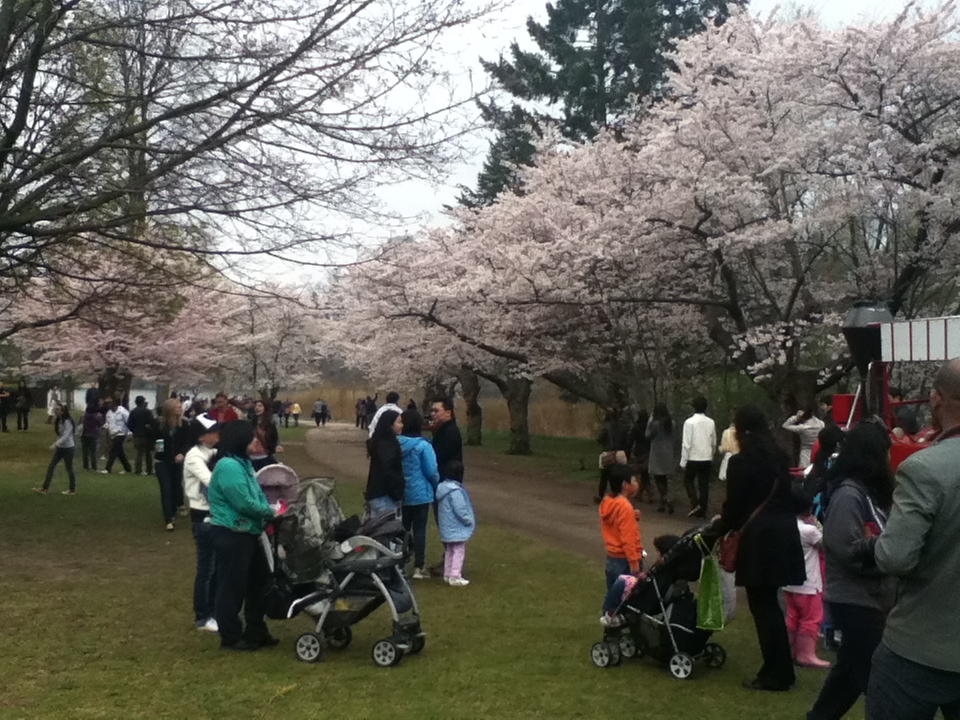
The crowds were there for good reason, too. The cherry blossoms, or sakura as they’re called in their native Japan, only flower for about a week, after which the delicate petals fall to the ground to make way for the leaves.

Because of their ephemeral beauty, the cherry blossoms have gained a reputation as a symbol of transience. And that got me thinking.
Let’s take a look back to my childhood. When I was a kid, my family and I would take occasional trips to High Park, whether it was to go see the zoo, to swim in the pool, or to let my brother and me play in the playground. But when I was about eight or nine, a man named Jamie Bell did something amazing with the help of some enthusiastic members of the community — they turned their ordinary playground into an enchanted castle.
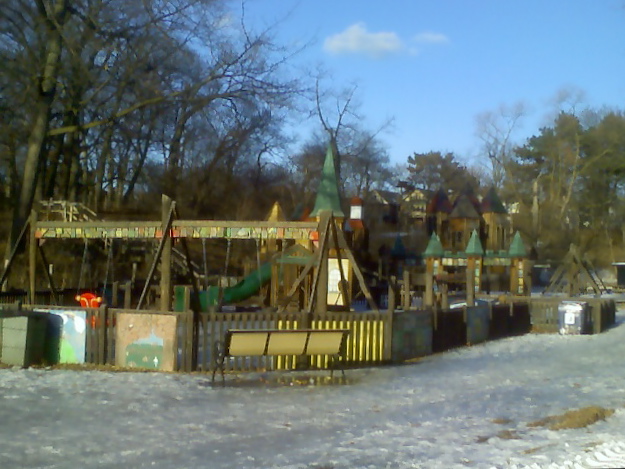
The pictures you see here are from when I was nostalgically wandering around the playground in the dead of winter a few years ago. The camera I had then was even worse than the one I have now, so please excuse the picture quality.
And what a castle it was. Your ordinary playground would have some slides, swings, maybe a jungle gym — this had all that and more. It had multiple floors to the castle with labyrinthine corridors, swings, musical toys, several slides, and more. This was more than just a playground — it was a kingdom, built for children like me.
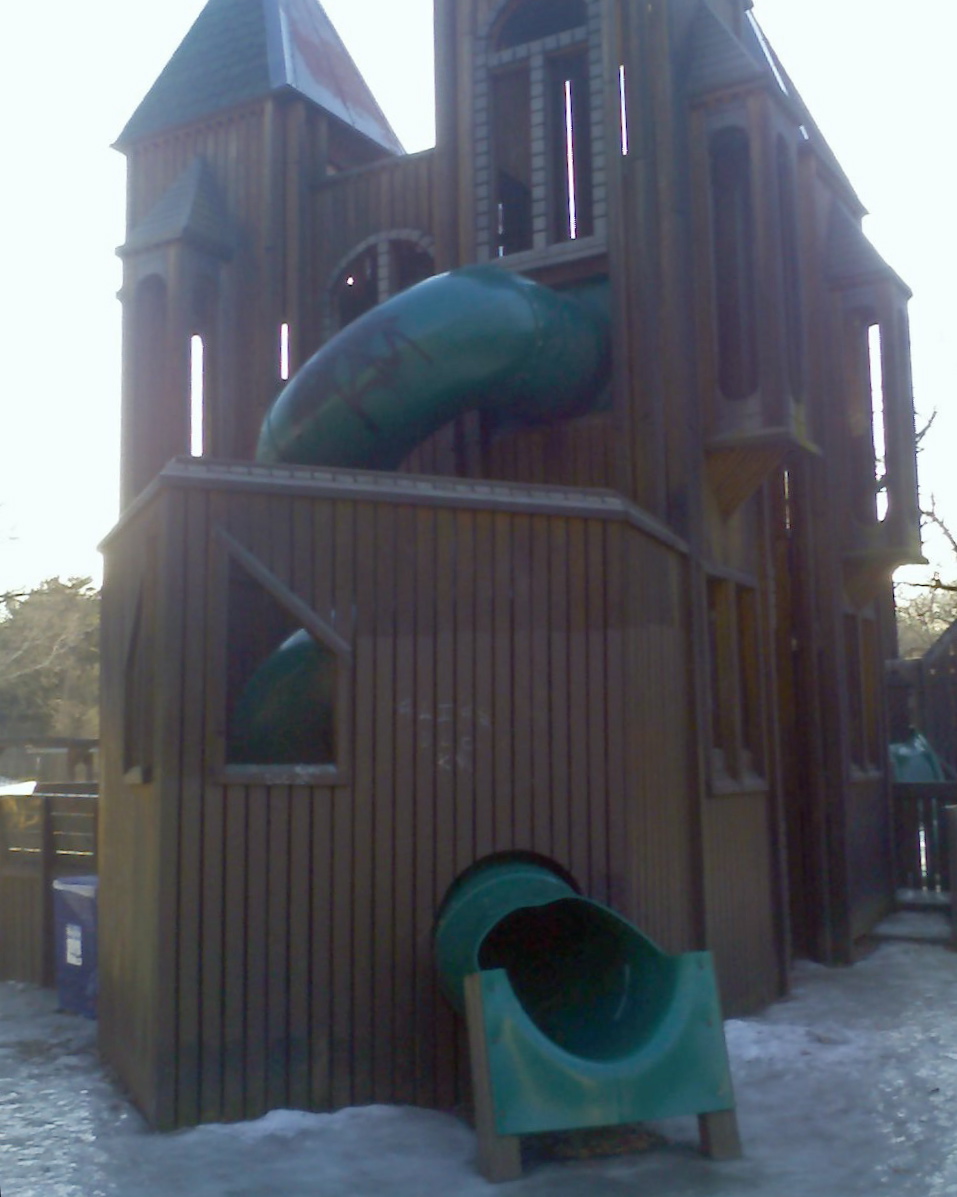
The biggest slide in the playground.
It even had its secrets. Down in the “dungeon”, there was a tiny opening, just big enough to squeeze through, that led to the area behind the big spiral tube slide. This part of the structure was walled off and inaccessible from the outside, presumably so kids wouldn’t be able to climb up the outside of the slide. But if you knew about this secret entrance, the world was your oyster. You could climb up the slide, you could bang on it to spook the kids sliding down inside it, or you could just go and hide there, away from the rest of the playground.
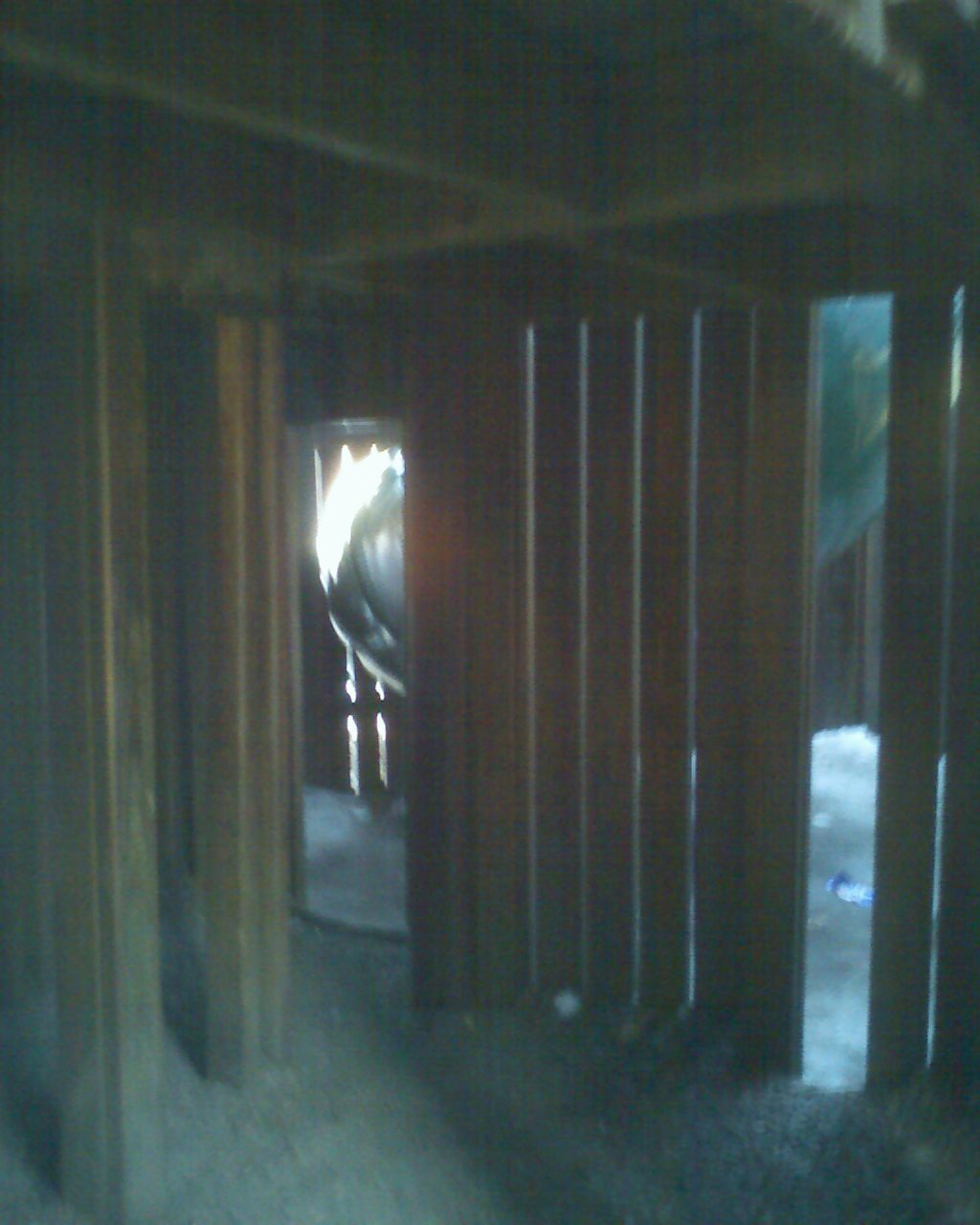
In the “dungeon”. The secret entrance is the hole on the left side of the image.
In retrospect, that entrance was probably meant for maintenance access, but it held a certain mystique to me as a kid. It was somewhere where you weren’t “supposed” to go, somewhere that the adults couldn’t find you. My own little hideout.
But about a month ago, someone lit the playground on fire.
I was on my laptop in the living room, the TV idly left on a news station, when I saw the report. It’s hard to describe the feeling that you get when you look up and are greeted with your childhood going up in flames.
After taking in the beauty of the cherry blossoms, and with the thoughts of transience still hanging in my mind, I decided it was time to visit what was left of the playground.
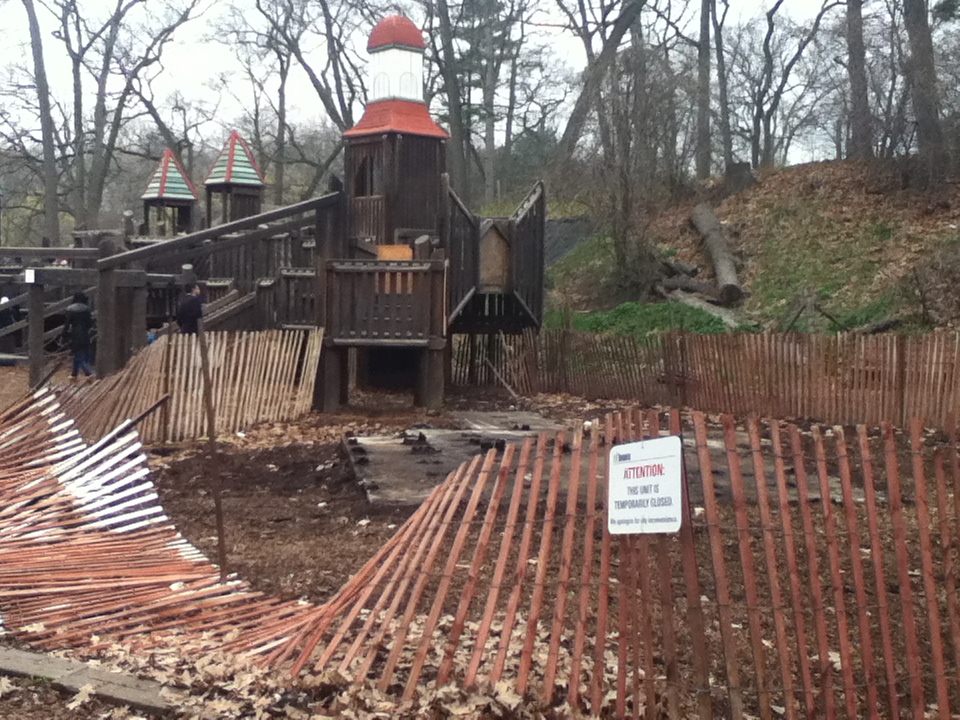
The damage wasn’t quite as bad as I expected. A good part of the playground had still survived, and there were plenty of kids playing there. But the big tube slide, the secret hideout, and the tallest towers of the castle had all been torn down. The good news is that there’s already a strong community effort to rebuild it, but I don’t think it’ll ever be quite the same.
I leave you with an old Jewish proverb I’d heard long ago:
Of all King Solomon’s servants, the bravest and most faithful was Benaiah, the captain of the guard. One day, Solomon called Benaiah in to see him. Solomon intended to give Benaiah a task that would humble him.
“Benaiah,” he said, “there is a certain ring I wish to wear for Sukkot. It is no ordinary ring — with just a glance, it has the power to make a happy man sad, and a sad man happy.”
“If it exists anywhere on Earth, Your Majesty, I will find it and bring it to you,” replied Benaiah, and he was off.
Benaiah searched for months with no success, until, on the night before Sukkot, he decided to go for a walk in one of the poorest areas of Jerusalem. Exasperated with his fruitless search, he asked an old merchant whether he knew of this magical ring.
“Indeed I do,” replied the merchant, and he pulled out a box from his satchel. Inside the box was a simple gold band with an engraving on it. It lacked any hint of magic, but the moment Benaiah laid eyes on it, he knew this was the ring he was looking for. He thanked the merchant, paid him his due, and returned to Solomon.
That night the city welcomed Sukkot with great festivities. With a teasing smile, Solomon greeted Benaiah, “My loyal servant! Have you found the ring I asked of you?”
“I have, Your Majesty,” he said, and handed the ring to Solomon.
The moment Solomon laid his eyes on the ring, the smile fell from his face, for engraved on the ring were the words:
This too shall pass
Forgot password?
Close message
Subscribe to this blog post's comments through...
Subscribe via email
SubscribeComments
Post a new comment
Comment as a Guest, or login:
Connected as (Logout)
Not displayed publicly.
Comments by IntenseDebate
Reply as a Guest, or login:
Connected as (Logout)
Not displayed publicly.